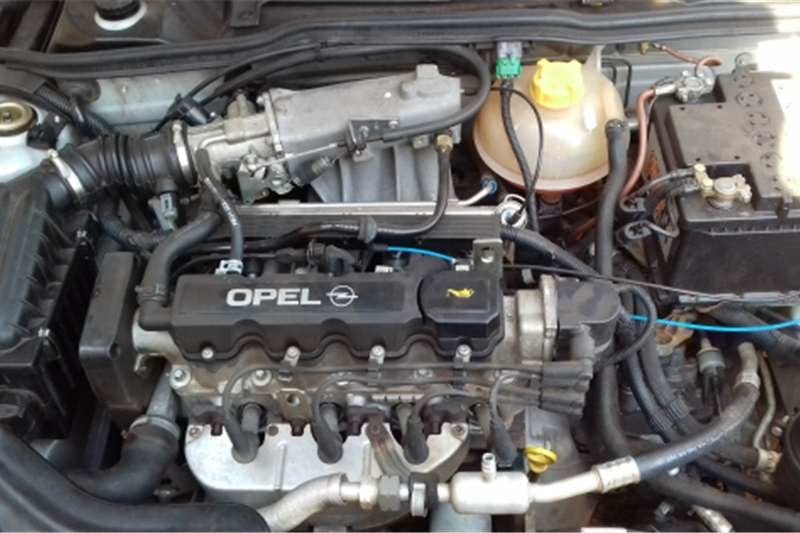Engine Purchasing Professional Tips on Choosing the Right Engine for Your Certain Demands
Picking the ideal engine for your certain demands entails an intricate interaction of aspects that exceed simple horsepower figures. From power result to sustain performance, the decision-making procedure can be intimidating. Comprehending the nuances of engine types, dimensions, and their compatibility with your lorry is critical. There are expert tips that can help navigate this terrain with confidence. By delving into the ins and outs of power versus efficiency, examining gas scores, and budgeting for long-term expenses, one can truly enhance their engine choice.
Power Vs. Effectiveness: Locating the Balance
When picking an engine, it is vital to strike a balance in between power and efficiency to satisfy your specific demands effectively. Power describes the engine's ability to create power for propulsion, figuring out factors like velocity, lugging capability, and total efficiency - Opel Corsa 1.4 Engine Price. On the various other hand, effectiveness associates with how well the engine uses gas to generate power, affecting elements such as fuel economic situation and environmental friendliness
Attaining the ideal equilibrium between power and effectiveness is crucial because an engine that is as well effective might consume extreme gas, bring about higher operating expenses and unneeded pressure on the setting. Conversely, an engine that prioritizes effectiveness over power might cause slow-moving performance, especially in demanding circumstances like pulling hefty lots or driving uphill.
To make an informed decision, consider elements such as your normal driving problems, the desired use the automobile, and your individual choices. By examining your needs and concerns, you can choose an engine that strikes the perfect equilibrium between power and performance, making certain ideal efficiency while minimizing environmental impact and operating expenses.
Comprehending Engine Size and Type
To even more refine the option process of an engine that strikes the optimal equilibrium between power and performance, it is necessary to delve right into the ins and outs of understanding engine dimension and type. Engine size refers to the complete volume of air and gas that can be pushed via the engine cyndrical tubes.
Common engine kinds consist of inline engines, V engines, and rotary engines, each with its special benefits and drawbacks. Comprehending the interaction between engine size and kind is essential in selecting an engine that lines up with your specific needs and top priorities, whether it be power, effectiveness, or a balance of both.

Consider Your Automobile's Needs
If you are looking for an engine for a durable vehicle that will certainly be used for towing, you will need a powerful engine with high torque abilities. On the various other hand, if you are picking an engine for a small auto primarily used for city commuting, fuel effectiveness may be a much more essential variable to consider.
If you regularly drive in mountainous or sloping areas, a robust engine with excellent climbing up power will be necessary. By straightening the engine specs with your car's needs, you can make certain that your automobile operates successfully and satisfies your efficiency expectations.
Assessing Fuel Performance Scores
Examining gas effectiveness rankings is a crucial facet of selecting the right engine for your automobile, making certain expense financial savings and environmental sustainability. Gas effectiveness ratings, commonly determined in miles per gallon (MPG) for fuel engines or kilowatt-hours per 100 miles (kWh/100 miles) for electric engines, show exactly how much a car can take a trip on a particular quantity of fuel or electrical energy. Higher MPG or reduced kWh/100 miles worths represent extra efficient engines, converting to reduced fuel prices and lower carbon discharges.
When evaluating fuel performance ratings, consider your driving routines and demands. A highly fuel-efficient engine can result in significant cost savings over time if you commute long ranges daily. Additionally, compare different engine choices within the very same lorry class to identify the most cost-effective selection. Factors such as engine size, weight, aerodynamics, and hybrid or electrical capacities can all affect gas efficiency.
Budgeting for Long-Term Costs
Tactically planning for lasting expenditures is crucial when choosing an engine, ensuring monetary sustainability over the automobile's life expectancy. While the first purchase cost of an engine is a considerable factor, it is critical to think about the long-term expenses associated with upkeep, repair work, and gas consumption.
In addition, investigating the availability and expense of replacement parts for the picked engine is important in spending plan planning. Engines with affordable and easily offered parts can substantially impact long-lasting upkeep expenses. this hyperlink Furthermore, taking into consideration the engine's sturdiness and anticipated lifespan can assist stay clear of unexpected replacement expenses in the future. By meticulously budgeting for these long-term costs and factoring them right into the decision-making procedure, individuals can choose site here an engine that not just fulfills their instant requirements yet also remains economical throughout its life-span.
Verdict
In verdict, picking the right engine for your specific needs requires stabilizing power and performance, understanding engine size and kind, considering your automobile's needs, examining gas effectiveness scores, and budgeting for long-lasting expenses. By thoroughly thinking about these elements, you can ensure that you choose an engine that fulfills your demands and supplies ideal performance for your vehicle.
To better improve the choice procedure of an engine that strikes the ideal balance in between power and effectiveness, it is vital to delve right into the complexities of recognizing engine dimension and type. Engine dimension refers to the total quantity of air and fuel that can be pressed through the engine cyndrical tubes. Common engine kinds include inline engines, V engines, and rotating engines, each with its special benefits and downsides. Recognizing the interplay in between engine size and type is vital in selecting an engine that straightens with visit this page your certain demands and concerns, whether it be power, performance, or an equilibrium of both.
